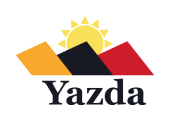Report Launch | The Yazidi Genocide: Ten Years & Counting
Submit a question
Please join the Wilson Center’s Middle East Program, the Yazda Organization, and the Zovighian Public Office for the launch of the report, "There is No Future in Sinjar Without Safety and Agency," the second in the two-part policy series detailing the critical challenges that require urgent and dedicated attention in the aftermath of the genocide and war crimes conducted by ISIS in Sinjar.
Ten years since the start of the Yazidi Genocide, the Yazidi community in Iraq has never been so vulnerable. The Sinjar Agreement is no longer being implemented, and its original design was far from the needs and voices of the historic communities of Sinjar. Few options remain for the Yazidis to return home to Sinjar safely and sustainably. Political inaction and disempowerment of local institutions have left Yazidis with no voice or access to security and services. The risk of re-displacement is very high. The latest hate crimes are enforcing a new culture of fear and uncertainty for Yazidi IDPs and returnees. At this event, the authors of the report will discuss these issues and more.
Keynoter Frank Wolf, former Representative of 10th District of Virginia, shared his experiences in Iraq during and after the war. Wolf highlighted the ongoing failure of the US government and the international community to provide adequate support to Iraq. It remains a critical issue. Wolf recommended that the US president issue an executive order to address the needs of the Yazidi people and other minorities in Iraq urgently, noting that time is running out as global attention shifts to other crises.
Moderator Nadine Maenza, president of the International Religious Freedom Secretariat, highlighted the importance of "political will" to address the challenges faced by the Yazidi community in Iraq.
Frustration Toward the Iraqi and Kurdistan Regional Governments
Pari Ibrahim, founder and executive director of the Free Yezidi Foundation, highlighted the frustration toward the Iraqi and Kurdistan Regional governments for failing to protect the Yazidi community, both during the ISIS genocide and in the years since. Ten years after the genocide, there has been little progress for the Yazidi community. Many Yazidis still live in camps. The government offers only $1,300 to return to Sinjar, which barely covers the cost of moving back, let alone rebuilding lives. Many Yazidis save money to leave Iraq entirely and seek asylum in countries like Germany, Australia, and the US. The pervasive sense of hopelessness within the Yazidi community comes from the lack of security, opportunities, and government care.
The Need for Empowerment of Yazidis
Murad Ismail, president of Sinjar Academy and co-founder of Yazda, discussed the political and security vacuum created post-ISIS. The situation makes the region unsafe for Yazidis to return to their homes. While some militias are being strengthened, the Yazidis are being weakened, particularly in Sinjar. He advocated for Yazidis to be empowered and equipped to prevent future atrocities, particularly given the uncertain geopolitical situation in the region.
Lynn Zovighian, founder of the Zovighian Public Office, noted that Sinjar is still a conflict zone. There is no clear plan, budget, or political will to ensure the safety and future of the Yazidi community. They are not included in the decision-making processes that affect their lives.
Seeking Justice and Dignity for Survivors
Natia Navrouzov, executive director of Yazda, pointed out the lack of justice and accountability for the crimes committed against the Yazidi community. Despite extensive documentation by UNITAD (the UN Investigative Team), there have been only nine trials in Germany, and most ISIS members in Iraq are being prosecuted solely for terrorism, not for the genocide and crimes against humanity they committed. The need for a comprehensive transitional justice framework is to include criminal accountability, truth-telling, and reparations.
Navrouzov expressed concern over Iraq’s decision to close UNITAD. She questioned what would happen to the evidence collected by UNITAD and urged Iraq to consult with the Yazidi community on the future of this evidence. She underscored the absence of guarantees that another genocide won't happen again.
Calls to the US and the International Community
Ibrahim urged the international community, particularly the US government, to continue pressuring Iraq and the Kurdistan Regional Governments to take meaningful action for the Yazidi people. She emphasized the importance of meeting with the US Secretary of State to convey the dire situation of the Yazidi community.
Ismael also called on the US government to exert more pressure on Iraq. The US should set clear boundaries for Iraq, linking financial aid and other support to tangible improvements in the treatment of minorities.
Navrouzov suggested that Iraq could learn from successful transitional justice processes in other parts of the world, such as Colombia and South Africa. While the Yazidi Survivors Law is a positive step, it needs to be expanded upon. There is a need for strong witness protection programs to ensure that those who come forward can do so safely.
Zovighian urged the US government to prioritize giving the Yazidis a voice and agency in these decisions. She called for Washington to facilitate inclusion and dialogue in both Baghdad and Erbil. She emphasized a critical concern about the personal security of the Yazidi leaders who speak out. The US and other allies should ensure that these leaders can safely return to Iraq without facing arbitrary arrests, harassment, or violence.
Amb. Rashad Hussain, Ambassador-at-Large at the US Department of State’s Office of International Religious Freedom, reaffirmed the US government's commitment to supporting religious and ethnic minorities in Iraq, including the Yazidi community. Since 2018, the US has provided over $500 million in assistance to religious and ethnic minority communities that were targeted for genocide by ISIS in Iraq and Syria. The US is committed to working with all relevant parties to address challenges and to push for meaningful reforms that would improve the situation for Yazidis and other minorities in Iraq.
Related Publication
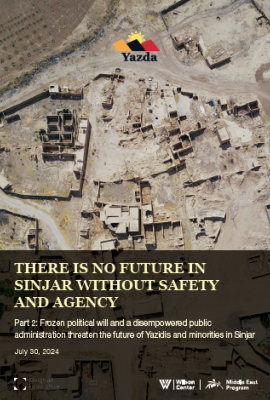
There is No Future in Sinjar Without Safety and Agency
Keynote Speakers
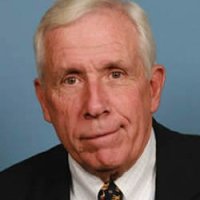
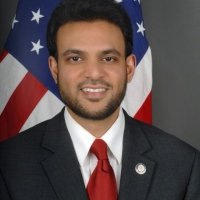
Moderator

President, International Religious Freedom Secretariat
Panelists

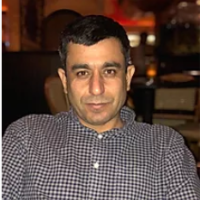
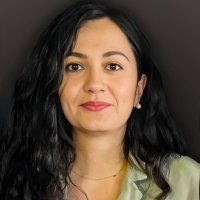

Hosted By

Middle East Program
The Wilson Center’s Middle East Program serves as a crucial resource for the policymaking community and beyond, providing analyses and research that helps inform US foreign policymaking, stimulates public debate, and expands knowledge about issues in the wider Middle East and North Africa (MENA) region. Read more




